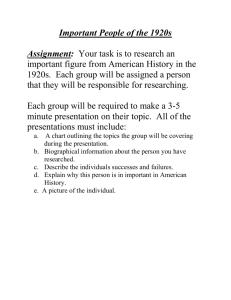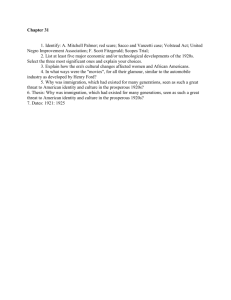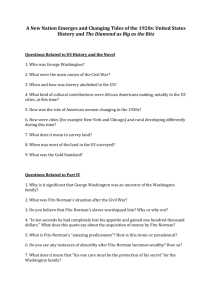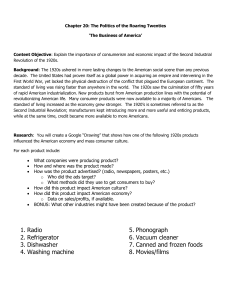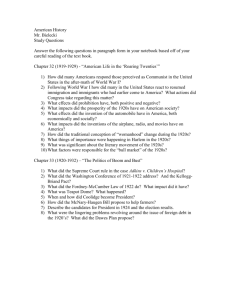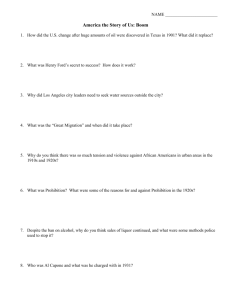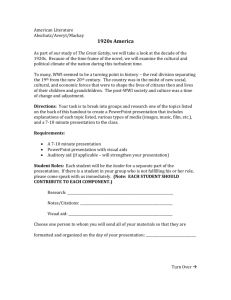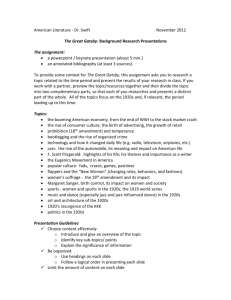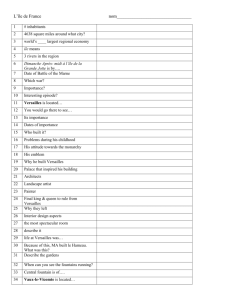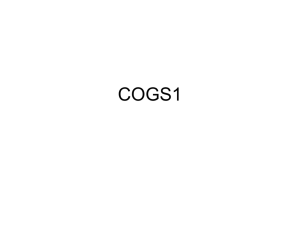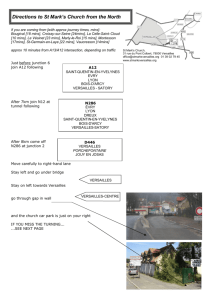H144-Study Guide (Midterm 2)--Spring 06.doc
advertisement
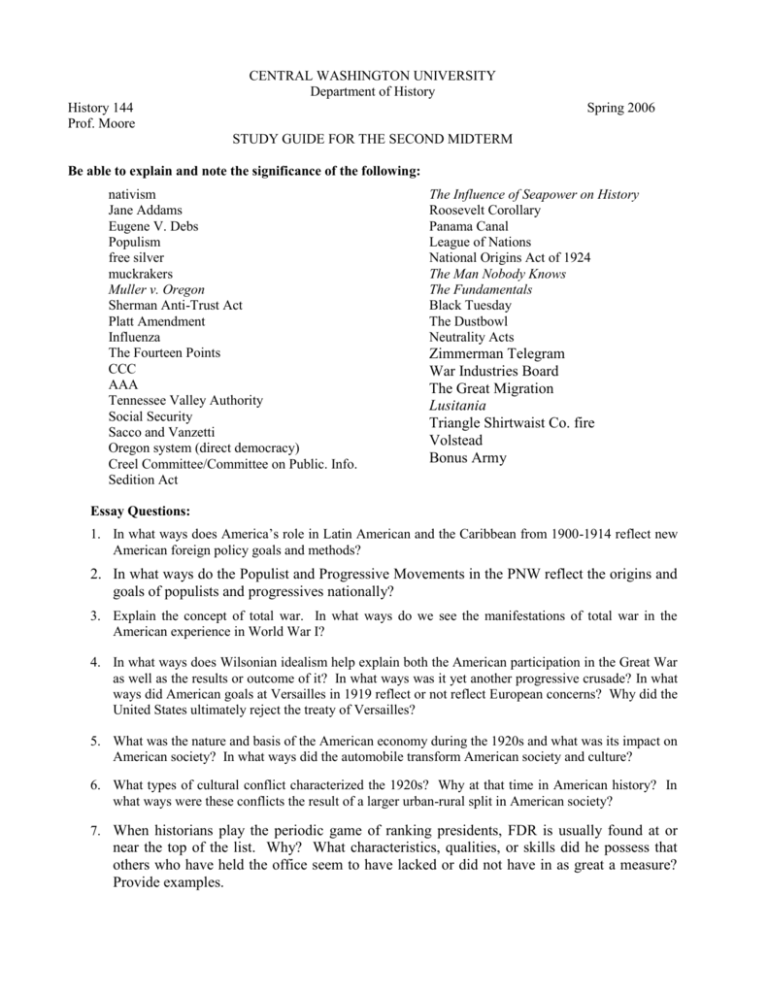
CENTRAL WASHINGTON UNIVERSITY Department of History History 144 Prof. Moore Spring 2006 STUDY GUIDE FOR THE SECOND MIDTERM Be able to explain and note the significance of the following: nativism Jane Addams Eugene V. Debs Populism free silver muckrakers Muller v. Oregon Sherman Anti-Trust Act Platt Amendment Influenza The Fourteen Points CCC AAA Tennessee Valley Authority Social Security Sacco and Vanzetti Oregon system (direct democracy) Creel Committee/Committee on Public. Info. Sedition Act The Influence of Seapower on History Roosevelt Corollary Panama Canal League of Nations National Origins Act of 1924 The Man Nobody Knows The Fundamentals Black Tuesday The Dustbowl Neutrality Acts Zimmerman Telegram War Industries Board The Great Migration Lusitania Triangle Shirtwaist Co. fire Volstead Bonus Army Essay Questions: 1. In what ways does America’s role in Latin American and the Caribbean from 1900-1914 reflect new American foreign policy goals and methods? 2. In what ways do the Populist and Progressive Movements in the PNW reflect the origins and goals of populists and progressives nationally? 3. Explain the concept of total war. In what ways do we see the manifestations of total war in the American experience in World War I? 4. In what ways does Wilsonian idealism help explain both the American participation in the Great War as well as the results or outcome of it? In what ways was it yet another progressive crusade? In what ways did American goals at Versailles in 1919 reflect or not reflect European concerns? Why did the United States ultimately reject the treaty of Versailles? 5. What was the nature and basis of the American economy during the 1920s and what was its impact on American society? In what ways did the automobile transform American society and culture? 6. What types of cultural conflict characterized the 1920s? Why at that time in American history? In what ways were these conflicts the result of a larger urban-rural split in American society? 7. When historians play the periodic game of ranking presidents, FDR is usually found at or near the top of the list. Why? What characteristics, qualities, or skills did he possess that others who have held the office seem to have lacked or did not have in as great a measure? Provide examples.
